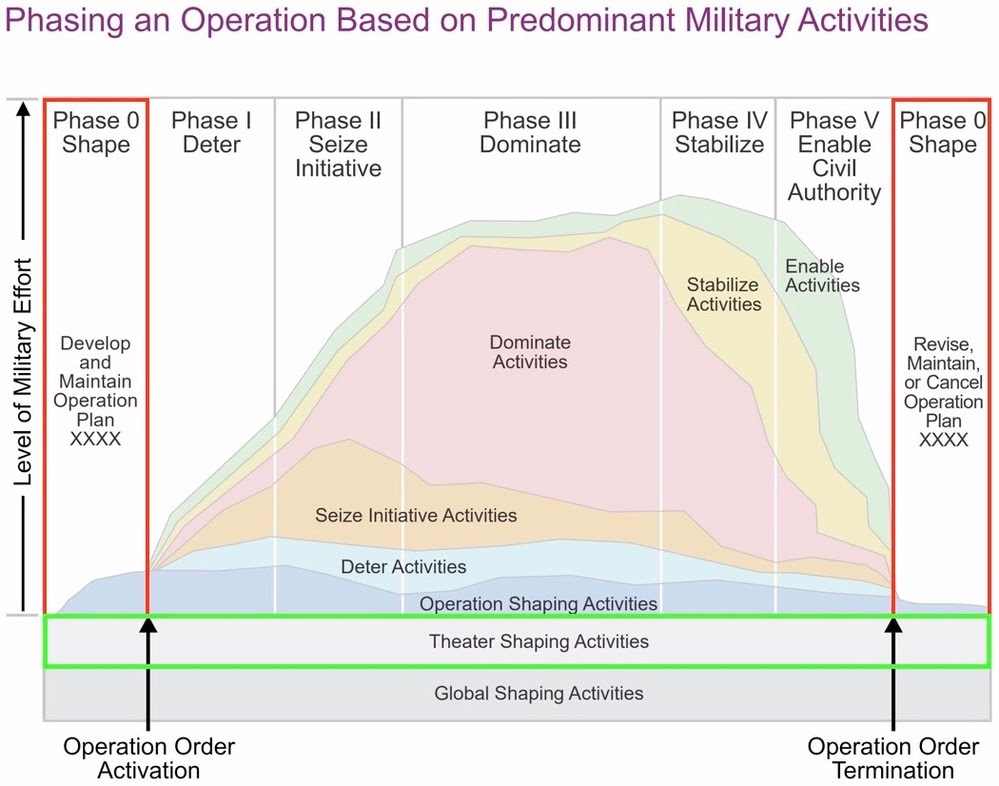Endless by design: US ‘security cooperation’ in Iraq
Speaking Security Newsletter | Advisory Note for Organizers and Candidates, n°55 | 30 October 2020
Situation
A recent Defense One article asks “Is Iraq’s Military Good Enough for US Troops to Leave?” Much of the establishment’s debate over Iraq involves this very question.
Only in the article’s final paragraph is it suggested that this question might be besides the point, because the plan was never to leave:
Basically this “former senior defense official” is saying that the purpose of US security cooperation with Iraq (and thus US presence) is not in deference to the purported “as they stand up, we stand down” formula. Instead, this person’s saying that it’s more about DOD’s regional strategy, implying that US presence in Iraq is not supposed to end.
We should take this claim seriously
Anonymous Defense Official’s claim makes sense when looking at how ‘security cooperation’ fits into DOD doctrine. Security cooperation is classified as a day-to-day, ‘shaping’ activity.
According to DOD, “security cooperation is a primary tool for shaping activities for all Geographic Combatant Commanders.” (Iraq falls under CENTCOM’s ‘area of responsibility’ — a map, here)
Security cooperation encompasses more than just training/equipping, but that’s most important bit to the US military. Here’s DOD again, talking about DOD’s ‘Global Train & Equip’ program, first authorized for FY2006 to ‘build partner capacity’:
“Combatant Commanders consider this program, which, trains and equips foreign military forces...as the single most important tool for the Department to shape the environment and counter terrorism.”
Below is the current DOD phasing construct. Phasing is meant to help Combatant Commanders “visualize, plan, and executive the entire operation and define requirements.”
Notice that “Phase 0 - Shape” (outlined in red) bookends all other military activities in a given operation. “Theater shaping” (outlined in green) underlies all prospective action. In other words, it’s meant to be going on at all times — indefinitely — either for a specific, localized operation or in the broader regional context in which future operations may or may not occur:

Conclusion
Viewed in this light, security cooperation isn’t as much about conflict prevention than it is a platform for the US military to rapidly scale-up operations in a given area (we saw this in Syria during the Obama administration — it started out as training/equipping local proxies, now we’ve got mechanized units on the ground).
And since scaling up military activity in Iraq will likely not require additional authorizations from Congress, there’s little standing in the way of more redeployments to the country.
And, of course, another perspective that falls out of the “Is Iraq’s military good enough” debate is the local perspective (this says a lot):

Thanks for your time,
Stephen (@stephensemler; stephen@securityreform.org)
Find this note useful? Please consider becoming a supporter of SPRI. Unlike establishment think tanks, we rely exclusively on small donations.




